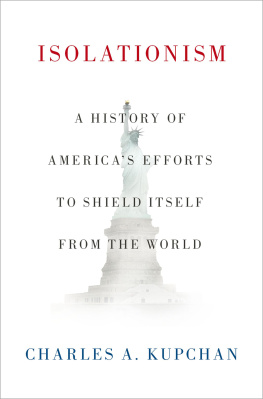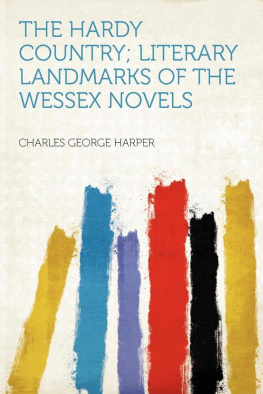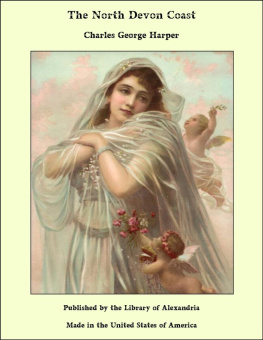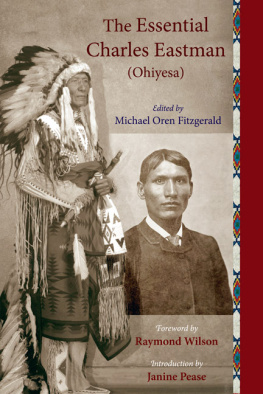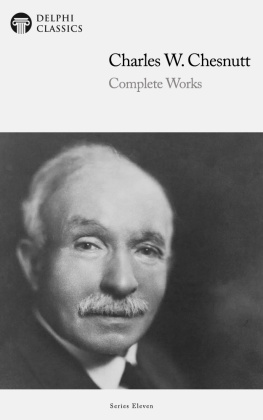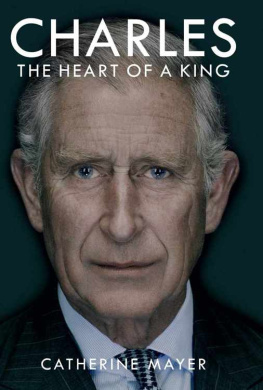Charles A. Kupchan - Isolationism
Here you can read online Charles A. Kupchan - Isolationism full text of the book (entire story) in english for free. Download pdf and epub, get meaning, cover and reviews about this ebook. year: 2020, publisher: Oxford University Press, genre: Politics. Description of the work, (preface) as well as reviews are available. Best literature library LitArk.com created for fans of good reading and offers a wide selection of genres:
Romance novel
Science fiction
Adventure
Detective
Science
History
Home and family
Prose
Art
Politics
Computer
Non-fiction
Religion
Business
Children
Humor
Choose a favorite category and find really read worthwhile books. Enjoy immersion in the world of imagination, feel the emotions of the characters or learn something new for yourself, make an fascinating discovery.
- Book:Isolationism
- Author:
- Publisher:Oxford University Press
- Genre:
- Year:2020
- Rating:4 / 5
- Favourites:Add to favourites
- Your mark:
- 80
- 1
- 2
- 3
- 4
- 5
Isolationism: summary, description and annotation
We offer to read an annotation, description, summary or preface (depends on what the author of the book "Isolationism" wrote himself). If you haven't found the necessary information about the book — write in the comments, we will try to find it.
Isolationism — read online for free the complete book (whole text) full work
Below is the text of the book, divided by pages. System saving the place of the last page read, allows you to conveniently read the book "Isolationism" online for free, without having to search again every time where you left off. Put a bookmark, and you can go to the page where you finished reading at any time.
Font size:
Interval:
Bookmark:

At a time when many are urging America to retreat internationally, Kupchans illuminating history of US foreign policy reminds us of isolationisms pitfalls as well as its continuing allure. Scholars and policy makers alike will benefit from this books trenchant analysis of Americas past and wise counsel about how to forge a more balanced, realistic, and enduring foreign policy going forward.
Peter Trubowitz, Professor of International Relations, London School of Economics
Charles Kupchan reminds us that a globally assertive foreign policy is more the exception than the norm in American history. Even those who do not fully agree with his arguments will find this book sharply argued, provocative, and engaging.
Hal Brands, Henry A. Kissinger Distinguished Professor of Global Affairs, Johns Hopkins School of Advanced International Studies (SAIS)
Astute political history.
Kirkus

Oxford University Press is a department of the University of Oxford. It furthers the Universitys objective of excellence in research, scholarship, and education by publishing worldwide. Oxford is a registered trade mark of Oxford University Press in the UK and certain other countries.
Published in the United States of America by Oxford University Press
198 Madison Avenue, New York, NY 10016, United States of America.
Charles A. Kupchan 2020
All rights reserved. No part of this publication may be reproduced, stored in a retrieval system, or transmitted, in any form or by any means, without the prior permission in writing of Oxford University Press, or as expressly permitted by law, by license, or under terms agreed with the appropriate reproduction rights organization. Inquiries concerning reproduction outside the scope of the above should be sent to the Rights Department, Oxford University Press, at the address above.
You must not circulate this work in any other form and you must impose this same condition on any acquirer.
Library of Congress Cataloging-in-Publication Data
Names: Kupchan, Charles, author.
Title: Isolationism : a history of Americas efforts to shield itself from the world / Charles A. Kupchan.
Other titles: History of Americas efforts to shield itself from the world
Description: New York, NY : Oxford University Press, [2020] | Includes index. |
Identifiers: LCCN 2020019840 (print) | LCCN 2020019841 (ebook) |
ISBN 9780199393022 (hardback) | ISBN 9780199393251 (epub)
Subjects: LCSH: United StatesForeign relationsHistory. | IsolationismUnited StatesHistory.
Classification: LCC E183.7 .K86 2020 (print) | LCC E183.7 (ebook) | DDC 327.73dc23
LC record available at https://lccn.loc.gov/2020019840
LC ebook record available at https://lccn.loc.gov/2020019841
To Nicholas S. Fish
The Council on Foreign Relations (CFR) is an independent, nonpartisan membership organization, think tank, and publisher dedicated to being a resource for its members, government officials, business executives, journalists, educators and students, civic and religious leaders, and other interested citizens in order to help them better understand the world and the foreign policy choices facing the United States and other countries. Founded in 1921, CFR carries out its mission by maintaining a diverse membership, with special programs to promote interest and develop expertise in the next generation of foreign policy leaders; convening meetings at its headquarters in New York and in Washington, DC, and other cities where senior government officials, members of Congress, global leaders, and prominent thinkers come together with CFR members to discuss and debate major international issues; supporting a Studies Program that fosters independent research, enabling CFR scholars to produce articles, reports, and books and hold roundtables that analyze foreign policy issues and make concrete policy recommendations; publishing Foreign Affairs, the preeminent journal on international affairs and U.S. foreign policy; sponsoring Independent Task Forces that produce reports with both findings and policy prescriptions on the most important foreign policy topics; and providing up-to-date information and analysis about world events and American foreign policy on its website, www.cfr.org.
The Council on Foreign Relations takes no institutional positions on policy issues and has no affiliation with the U.S. government. All views expressed in its publications and on its website are the sole responsibility of the author or authors.
Part I
The Era of Isolationism, 17891898
Part II
The Defeat of Realist and Idealist Internationalism, 18981941
Part III
The Rise and Fall of Liberal Internationalism, 19412020
The United States is in the midst of a bruising debate about its role in the world. Not since the interwar era have Americans been so divided over the scope and nature of their engagement abroad. President Donald Trumps America First approach to foreign policy certainly amplified the controversy. His isolationist, unilateralist, protectionist, and anti-immigrant proclivities marked a sharp break with the brand of internationalism that the country had embraced since World War II. But Trumps election was a symptom as much as a cause of the nations rethink of its approach to the world. Decades of war in the Middle East with little to show for it, rising inequality and the hollowing out of the nations manufacturing sector, political paralysis over how to fix a dysfunctional immigration policythese and other trends have been causing Americans to ask legitimate questions about whether U.S. grand strategy has been working to their benefit. The COVID-19 pandemic then caused a severe economic downturn the likes of which the nation had not experienced since the 1930sthe last time the United States made the mistake of beating a strategic retreat in the face of mounting trouble abroad. Adding to the urgent and heated nature of this rethink of American foreign policy is Chinas rise and the threat it poses to the liberal international order that took shape during the era of the Wests material and ideological dominance.
Isolationism speaks directly to this unfolding debate over the future of the nations engagement with the world. It does so primarily by looking back, by probing Americas isolationist past. Although most Americans know little about it, the United States in fact has an impressive isolationist pedigree. In his Farewell Address of 1796, President George Washington set the young nation on a clear course: It is our true policy to steer clear of permanent alliances with any portion of the foreign world. The isolationist impulse embraced by Washington and the other Founders guided the nation for much of its history prior to the Japanese attack on Pearl Harbor in 1941.
My starting premise is not that the United States should or will return to the grand strategy of nonentanglement urged on the nation by its first president. But Americas isolationist past does have much to teach us about the nations current geopolitical predicament. Many readers may find this assertion puzzling. After all, the United States has spent much of the last eighty years strenuously trying to run the world through a global network of international institutions, alliances, and military bases. Beginning during World War II and continuing well into the twenty-first century, successive administrations have sought to open up and knit together international markets while maintaining strategic commitments in virtually all quarters of the globe.
Font size:
Interval:
Bookmark:
Similar books «Isolationism»
Look at similar books to Isolationism. We have selected literature similar in name and meaning in the hope of providing readers with more options to find new, interesting, not yet read works.
Discussion, reviews of the book Isolationism and just readers' own opinions. Leave your comments, write what you think about the work, its meaning or the main characters. Specify what exactly you liked and what you didn't like, and why you think so.

